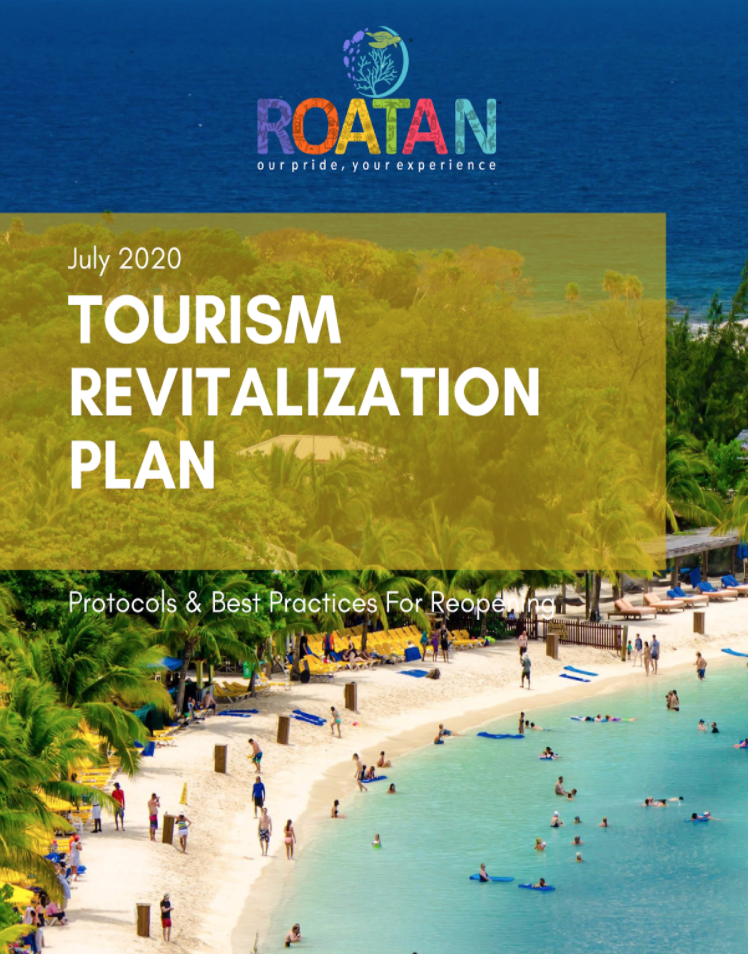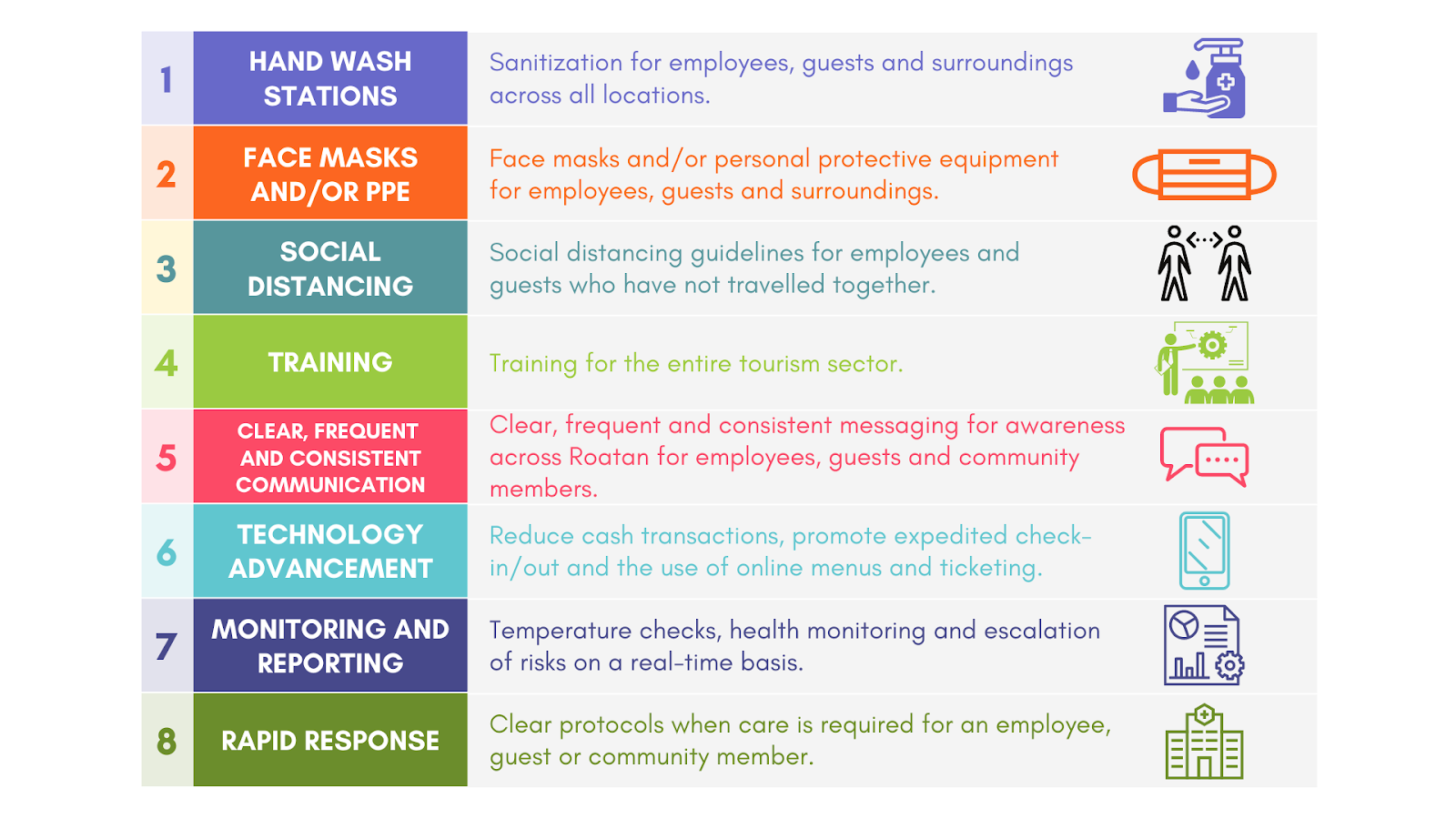 The COVID-19 pandemic has triggered an unprecedented economic crisis across the globe—particularly in countries and regions that are highly dependent upon tourism revenue.
The COVID-19 pandemic has triggered an unprecedented economic crisis across the globe—particularly in countries and regions that are highly dependent upon tourism revenue.
In Honduras, for example, eight percent of the GDP comes from tourism. Spring break is one of their most popular travel periods when tourists from around the world flock to the Bay Islands on the Honduran Caribbean coast. The Bay Islands are a launching point to the world’s second-largest reef system—the Mesoamerican Reef—and the beautiful white sand beaches attract vacationers from around the globe. But this year, Easter week alone saw a loss of $283.4 million USD and nearly 30,000 jobs. The local communities who depend on that revenue and income felt the effects acutely.
CORAL has partnered with local Bay Island communities since 2005 to build programs that reduce the impact of tourism on the reef and to ensure proceeds from tourism benefit communities and the environment. But perhaps even more importantly, we’ve helped the communities build programs that allow them to become resilient to setbacks, including COVID-19.
When tourism suddenly came to an abrupt halt, CORAL and its local partners immediately got to work. We united with Go Blue Bay Islands and various tourism industry and government representatives to create a local committee that could help the region safely reopen its tourism economy. The popular committee soon expanded into a national committee and began addressing tourism safety across the country. Together the team created The Tourism Revitalization Plan*, which outlines biosecurity guidelines and best practices that provide a framework for restarting tourism responsibly and safely.
“One of the greatest values of these guidelines is that they come from a joint approach that promotes inclusivity and applicability,” says Ms. Syntia Solomon, President of the Bay Islands Tourism Bureau and one of the founders of Go Blue Bay Islands. “Our destination and businesses must reopen, and we must restart domestic and international tourism responsibly and safely. To achieve this, all cross-sector businesses, regardless of size, must put in clear, sustainable and practical protocols.”
 The document has outlined protocols for businesses across sectors, like hotels, restaurants, tour operators, dive centers, rental car companies, beaches, gift shops and more. Some of the protocols are fairly familiar—like ensuring ease of access to hand-washing stations, requiring face masks, and encouraging social distancing. Others focus on ensuring employees and tourism operators are trained to recognize and address risks. And some outline clear response procedures for when an employee or community member tests positive.
The document has outlined protocols for businesses across sectors, like hotels, restaurants, tour operators, dive centers, rental car companies, beaches, gift shops and more. Some of the protocols are fairly familiar—like ensuring ease of access to hand-washing stations, requiring face masks, and encouraging social distancing. Others focus on ensuring employees and tourism operators are trained to recognize and address risks. And some outline clear response procedures for when an employee or community member tests positive.
Just like coral reefs, when human communities are able to shift and adapt in times of crisis, they can stand strong—and even thrive—when faced with shocks and stresses. By listening to our local partners and acting based on their feedback, and by ensuring local communities have a united voice and the resources they need to weather periods of uncertainty, we can help the Bay Islands bounce back and reopen safely.
“One of the most incredible things about the Bay Islands is our proximity the Mesoamerican Reef,” says Tanya Amaya, CORAL’s Program Manager in the Bay Islands. “Our economy is built around people coming from across the globe to experience its magic and enjoy our beautiful beaches. We’re hopeful that with these new protocols, we’ll be able to reopen the economy safely and begin welcoming visitors again.”
*This work was generously funded in part by The Tiffany & Co. Foundation
